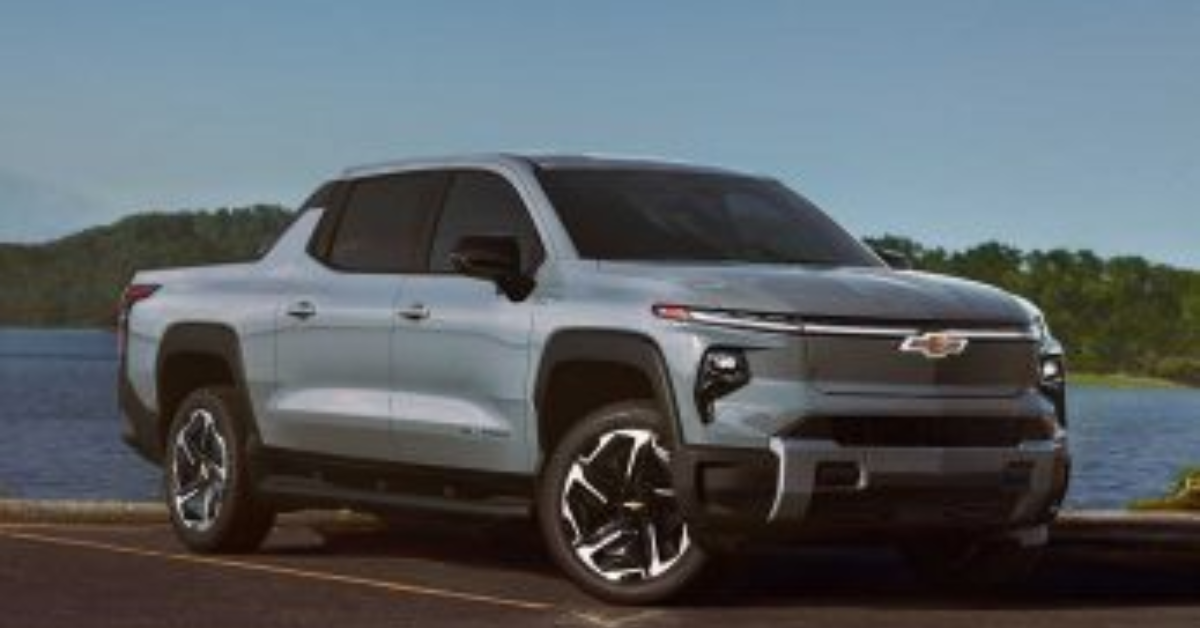Chevrolet’s much-anticipated Silverado EV has been praised for its futuristic design, impressive range, and innovative features. However, like any new vehicle technology, early production batches can face teething issues. Recently, GM announced that certain Chevy Silverado EV units will require a steering shaft fastener fix to address a potential safety concern. While the issue may not affect all vehicles, it’s a reminder of the importance of quality checks in electric vehicle production.
In this article, we will break down what the problem is, why it matters, which models are affected, and how GM plans to resolve it.
Understanding the Steering Shaft Fastener Issue
The steering shaft fastener is a crucial component that secures the steering column to the steering mechanism. It ensures that the driver’s inputs on the steering wheel translate accurately and safely into the movement of the vehicle’s wheels.
In the affected Silverado EV units, GM identified that the fastener may not have been tightened to the correct torque specification during assembly. While this might sound like a small oversight, in rare cases, an improperly secured fastener could loosen over time, potentially impacting steering control.
Potential Risks and Safety Implications
While GM has not reported any accidents or injuries related to this defect, the company is treating the matter seriously due to its potential safety impact.
Possible risks include:
- Reduced steering responsiveness if the connection becomes loose.
- Steering wheel play, making the vehicle harder to control at higher speeds.
- In rare extreme cases, loss of steering control if the fastener completely disengages.
For an electric truck that may be towing heavy loads or navigating off-road conditions, maintaining precise steering control is essential for driver and passenger safety.
Which Chevy Silverado EV Units Are Affected?
GM has not disclosed the exact number of vehicles involved, but the recall affects certain Silverado EV models produced in recent months at the company’s Michigan assembly facility.
Both Work Truck (WT) variants and higher-spec trims may be included. Owners will be notified directly by GM via email or mail, with details about their vehicle’s VIN and repair arrangements.
The Recall Process and Repair
GM has confirmed that the repair process is straightforward and will be provided free of charge to owners.
Steps in the recall process include:
- Owner Notification – GM will contact owners with details on scheduling a service appointment.
- Inspection – Service technicians will check the steering shaft fastener for proper torque.
- Tightening or Replacement – If necessary, the fastener will be tightened to the correct specification or replaced entirely.
- Final Safety Check – Technicians will ensure all steering components are secure before returning the vehicle.
The entire process is expected to take less than an hour, depending on dealership scheduling.
GM’s Response and Commitment to Quality
GM has emphasized its commitment to safety and customer satisfaction. A spokesperson for the company stated:
“We are proactively addressing a potential concern with certain Silverado EV units to ensure our customers can continue to enjoy their vehicles with complete confidence. We encourage owners to schedule their inspections as soon as possible.”
This swift action reflects the growing importance of post-production monitoring in the EV era. Manufacturers increasingly rely on early owner feedback, internal quality audits, and digital diagnostics to catch issues before they become widespread.
What Silverado EV Owners Should Do Now
If you own a Chevy Silverado EV, here’s what you should do:
- Check your VIN – Use GM’s recall lookup tool or wait for official communication.
- Schedule a service appointment – If your vehicle is affected, arrange an inspection as soon as possible.
- Avoid heavy towing or off-road use until the fix is applied, as steering stress could worsen the issue.
- Stay informed – Follow GM’s updates for any changes in recall scope.
The Bigger Picture: Recalls in the EV Market
While traditional vehicles have faced recalls for decades, electric vehicles bring unique challenges. New production lines, innovative designs, and fresh supply chains mean early batches are more prone to small oversights.
However, the advantage of EV platforms is that many components can be monitored via onboard diagnostics, allowing manufacturers to catch issues earlier than before. In the Silverado EV’s case, the steering issue was caught before widespread incidents occurred.
Will This Affect Silverado EV’s Reputation?
While some potential buyers may be concerned, history shows that proactive recalls often improve brand trust when handled transparently. GM’s quick action, clear communication, and free fix will likely prevent any significant dent in the Silverado EV’s growing reputation.
In fact, early adopters of electric trucks expect manufacturers to refine their vehicles in the first production years. As long as safety issues are addressed promptly, the Silverado EV will remain competitive against rivals like the Ford F-150 Lightning and Rivian R1T.
Final Thoughts
The steering shaft fastener issue in some Chevy Silverado EV units is a minor but important fix that highlights the evolving nature of electric truck manufacturing. GM’s decision to act quickly and ensure customer safety should help maintain trust in the Silverado EV brand.
If you are an owner, the best course of action is to respond quickly to the recall notice and get your vehicle inspected. With the fix applied, you can continue to enjoy the Silverado EV’s power, range, and cutting-edge features with peace of mind.

